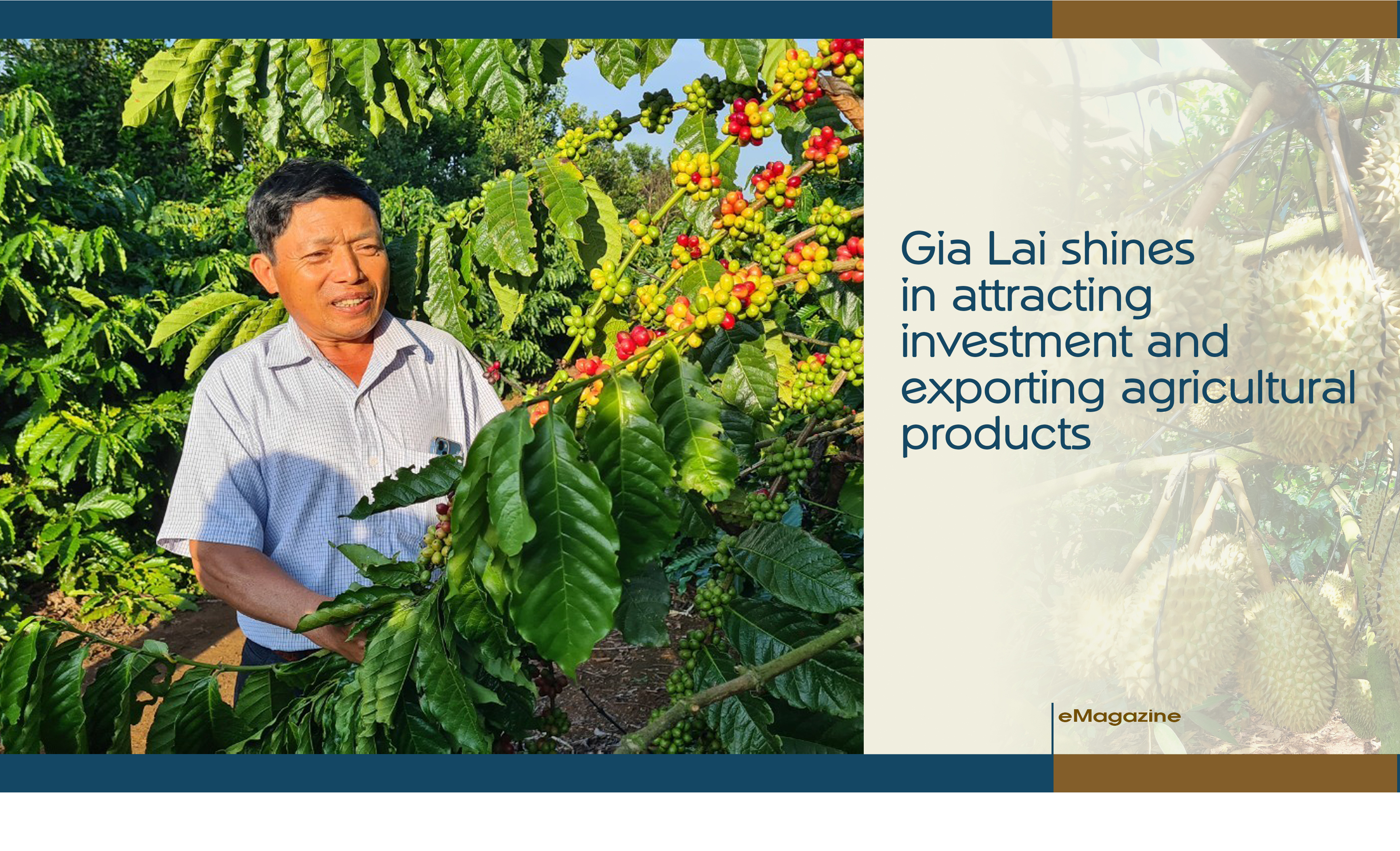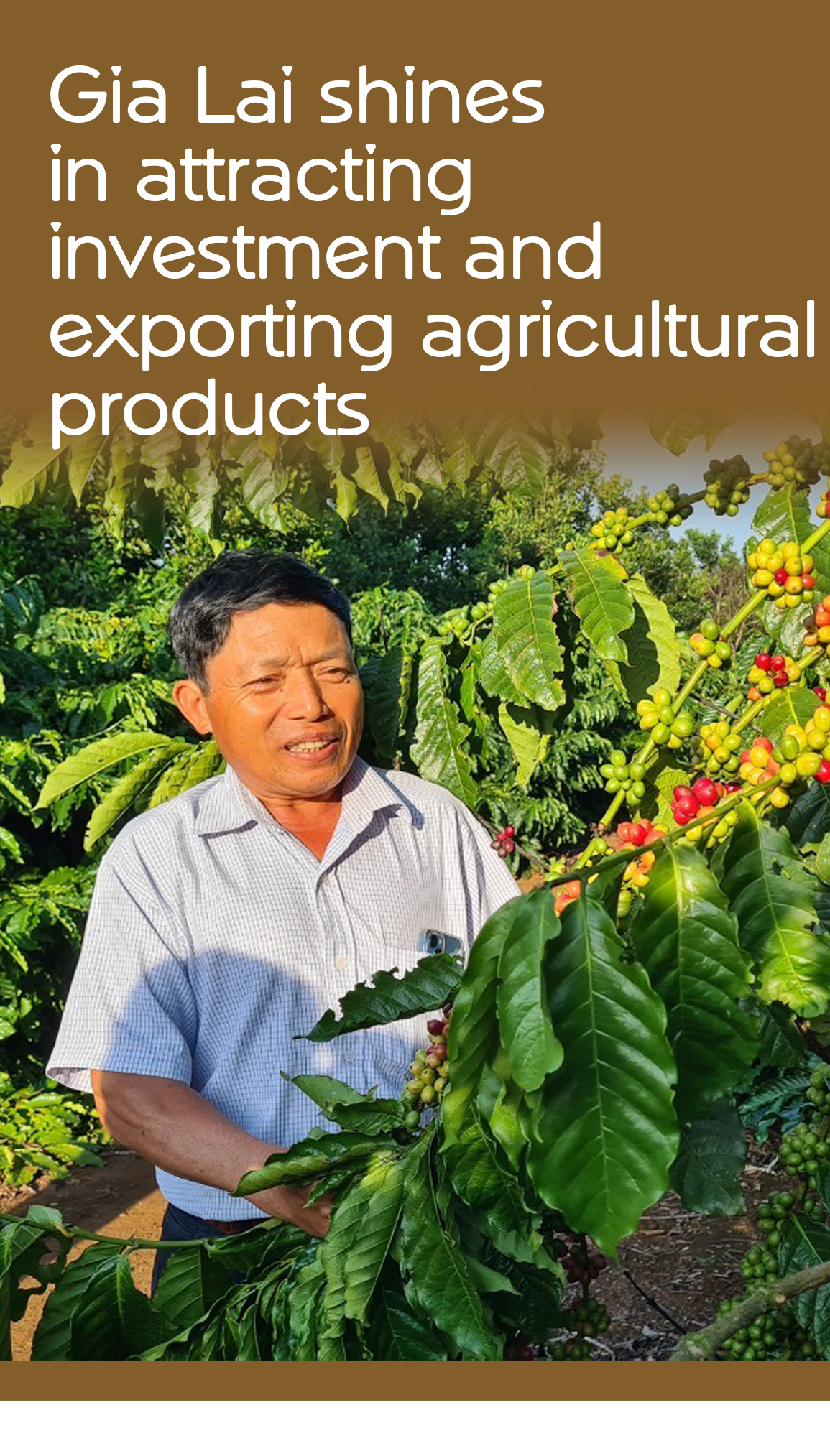Gia Lai province's agricultural industry has had a fairly comprehensive development towards sustainability, practicing production according to clean agriculture standards and organic agriculture associated with production and processing. Accordingly, export value increases and the market is increasingly expanded and sustainable.
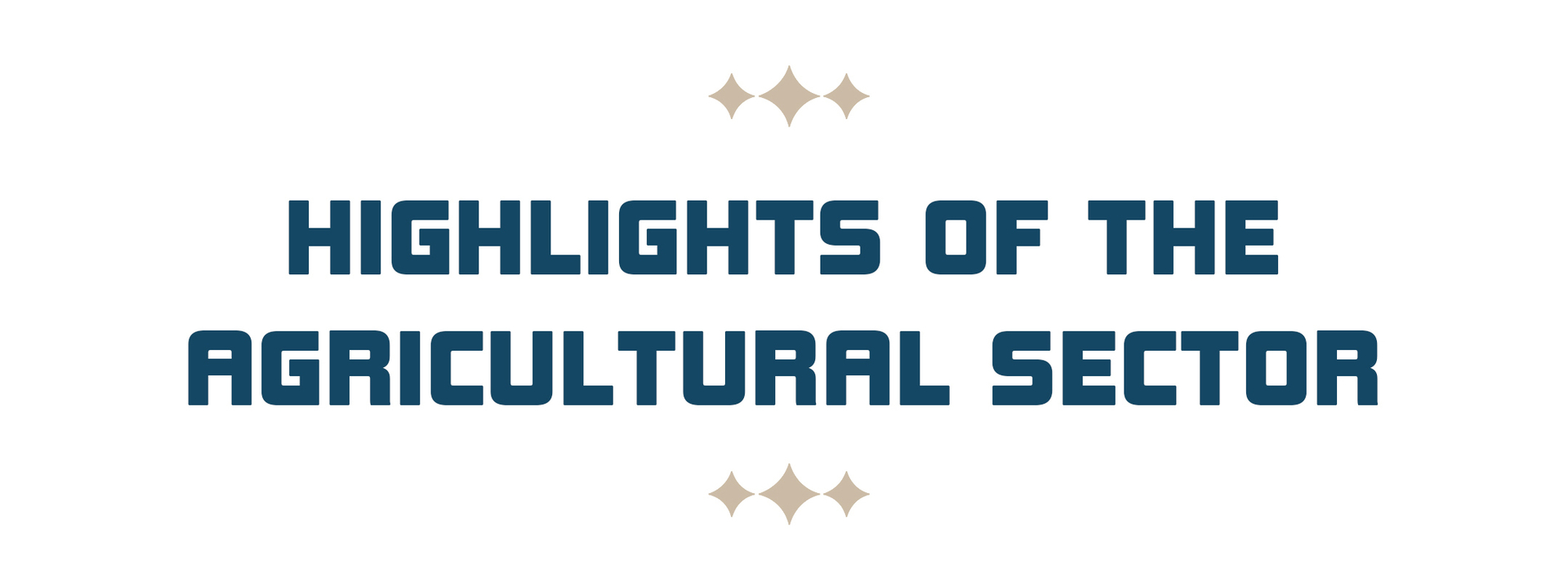
Gia Lai has over 9,000 hectares of fruit trees certified to meet VietGAP and GlobalGAP standards.
Gia Lai is a mountainous province on the northern border of the Central Highlands, with a natural area of over 1.55 million hectares, including over 845 thousand hectares of agricultural land with a large area of red basalt soil suitable for many crops, including fruit trees.
Implementing the policy of developing fruit tree production to 2030, with a vision to 2040, the Gia Lai Provincial People's Committee has approved the Project to build fruit tree production in Gia Lai Province to 2030, with a vision to 2040.
In recent years, the Gia Lai Agriculture sector has proactively coordinated with departments, branches, businesses, and localities to develop fruit tree production on a reasonable scale, following each individual's advantages. Thereby gradually reducing the area of ineffective crop cultivation, switching to growing fruit trees and orient development, and forming specialized fruit production and export areas. Gia Lai province aims to produce and export fruit associated with a stable consumption market.
Up to now, Gia Lai's fruit tree area is nearly 30,200 hectares. Of which, more than 9,000 hectares of fruit trees have production certificates meeting VietGAP and GlobalGAP standards.
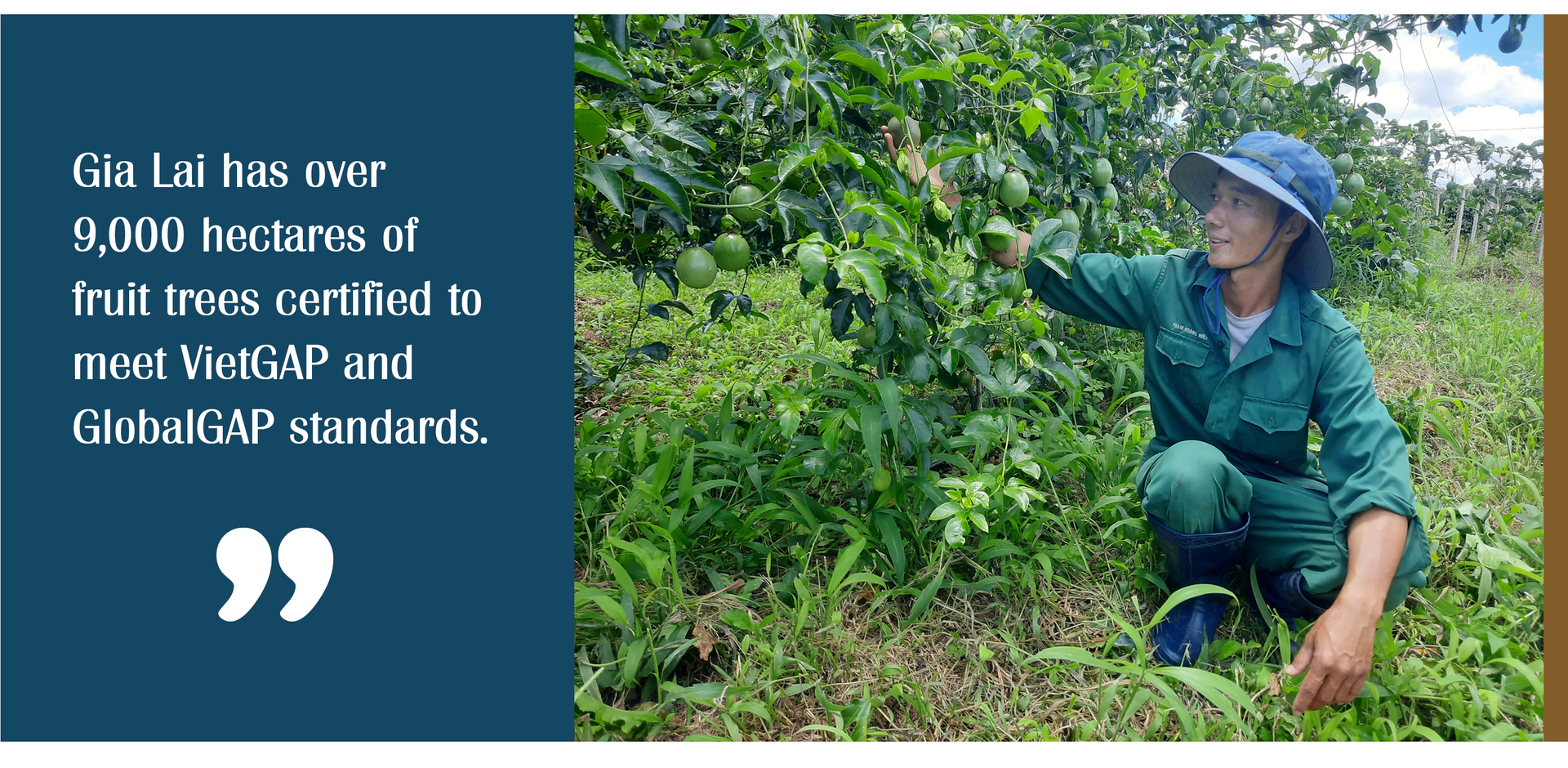
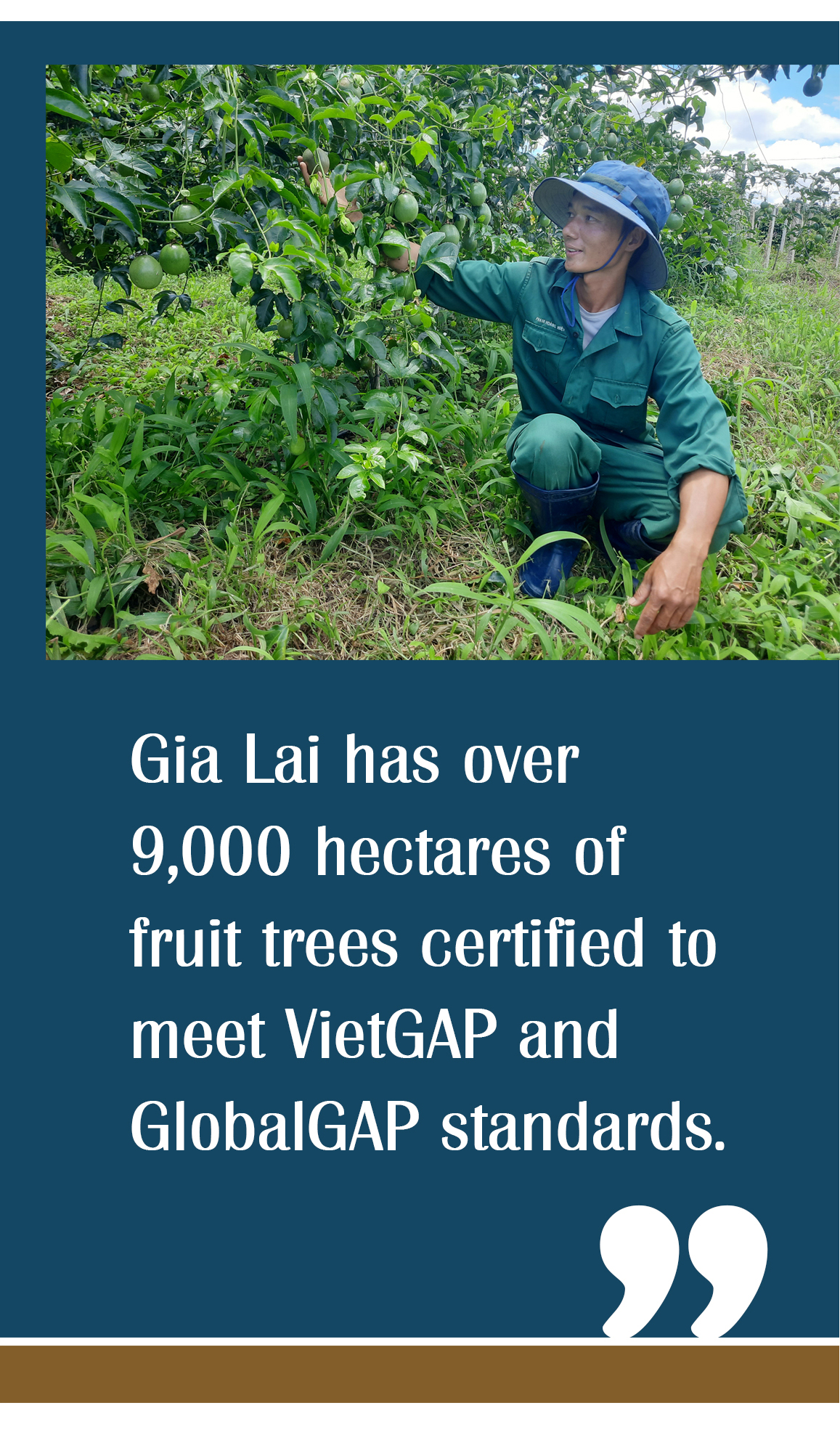
The province currently has 170 production unit codes with a total area of more than 8,300 hectares and 32 packing house codes for export with a total packaging capacity of more than 1,200 - 1,300 tons of fresh fruit/day.
Mainly, durian, passion fruit, and banana trees have been granted 99 production unit codes with a total area of more than 4,800 hectares and 32 packing house codes, with a total packaging capacity of more than 1,200 - 1,300 tons of fresh fruit/day.
Specifically, the current durian area is 5,000 hectares. Of these, 41 durian production unit codes have been granted, with a total area of nearly 1,000 hectares and 4 packing houses with a full packaging capacity of about 300 - 320 tons of fresh fruit/day.
Meanwhile, passion fruit has an area of more than 4,600 hectares. Passion fruit has been granted 32 production unit codes with a total area of nearly 900 hectares and 5 export packaging facilities with a total packaging capacity of about 240 - 265 tons of fresh fruit/day.
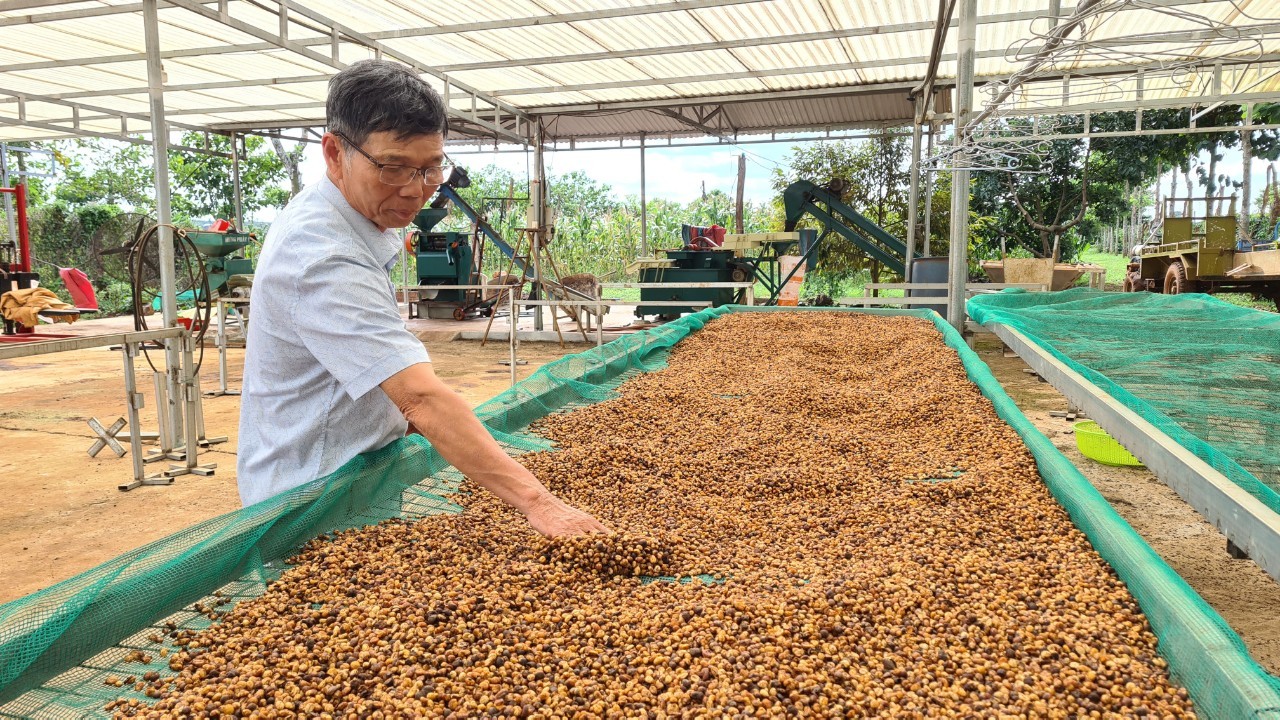
Thanks to the bright spots of the agricultural sector, Gia Lai province has attracted many businesses, cooperatives, organizations, and individuals to invest in building purchasing, storage facilities, and vegetable and fruit processing factories in the area. Prominent as the preliminary processing, processing, and packaging factory of fresh fruit and IQF frozen fruit of Hoang Anh Gia Lai Joint Stock Company with a capacity of 36,500 tons of products/year; Vegetable and fruit processing factory of Dong Giao Foodstuff Export Joint Stock Company, with a capacity of 52,000 tons of products/year; Quicornac fruit processing factory of DIVAFRUIT S.A Company, with a capacity of 15,000 tons of products/year; Fruit product processing factory of Hung Nguyen General Materials Company Limited, with a capacity of 341 tons of products/year.
Gia Lai province has attracted many businesses, cooperatives, organizations and individuals to invest in building purchasing, storage facilities and vegetable and fruit processing factories in the area.

The province's export turnover in August was about US$ 40 million, accumulated in the first 8 months of the year at US$ 530 million, reaching nearly 80% of the plan, up almost 4% over the same period.
Through attracting investment from businesses, we have promoted the development of cooperation, production links, and application of scientific and technical advances and practices according to good agricultural standards, creating high-quality fruit products, ensuring export standards. Many demanding consumer markets such as the EU, US, Japan, Korea, China, Hong Kong, Australia, Russia, Canada…have accepted Gia Lai's safe agricultural products.
The province's export turnover in August was about US$ 40 million, accumulated in the first 8 months of the year at US$ 530 million, reaching nearly 80% of the plan, up nearly 4% over the same period.
Pham Van Binh, Director of the Department of Industry and Trade of Gia Lai province said that exports increased due to a sharp increase in consumer demand during holidays in some main markets such as the EU and the US. In addition, from February 2023, China removed the zero Covid policy to stimulate consumer demand to increase again. Many Vietnamese agricultural products and fruits (bananas, passion fruit, durian, bird's nest, sweet potatoes ...) are officially exported to China.
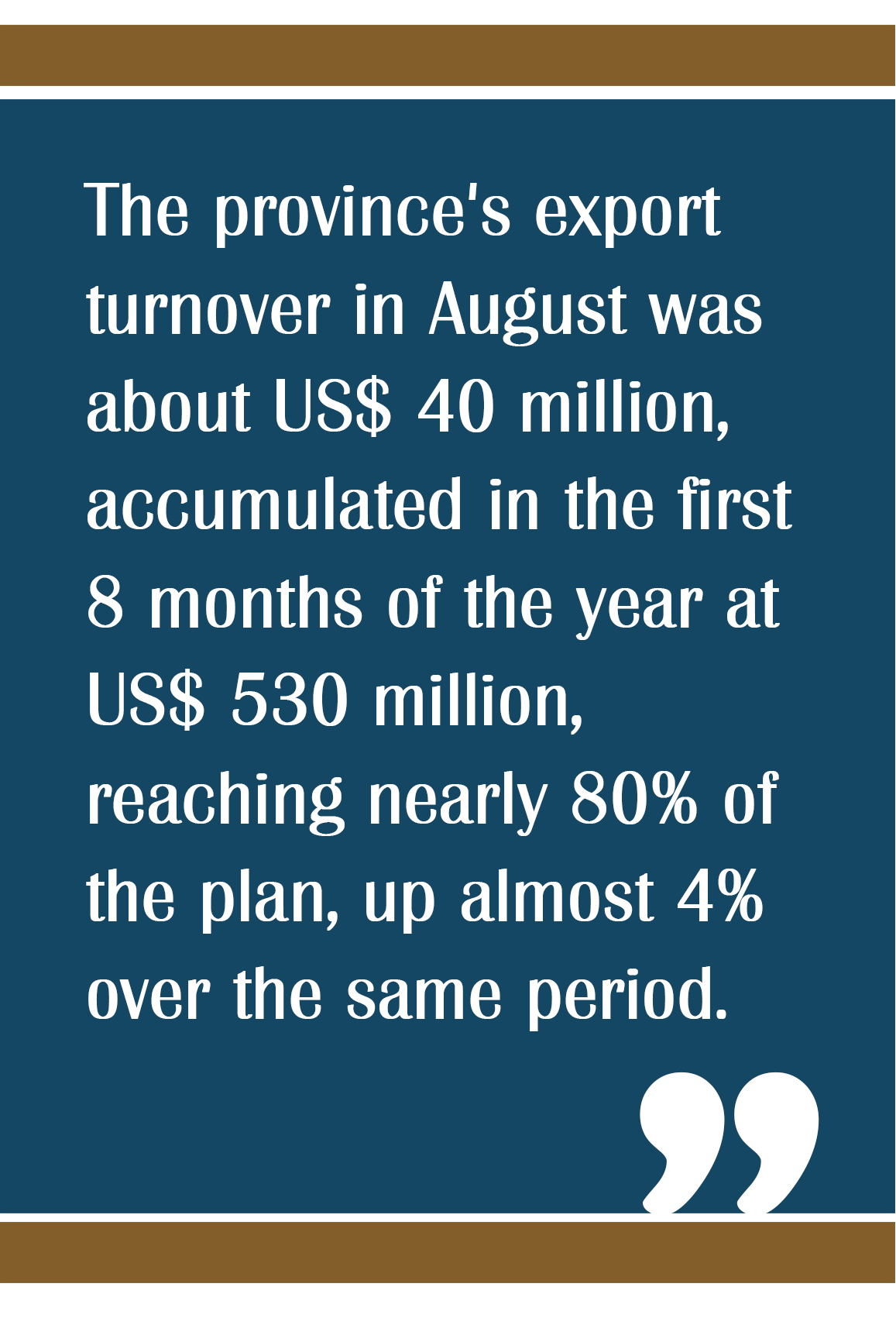
Also, according to Binh, the first quarter of 2023 is when Gia Lai province's agricultural products are in harvest season, so the volume of goods is significant, especially coffee and fruit trees. Meanwhile, coffee export prices have increased steadily up to now.
On the other hand, the impact of free trade agreements, especially the EVFTA and RCEP agreements, has created favorable conditions for businesses to expand markets and improve export capacity.
Additionally, the province's businesses have actively improved the quality and designs and built product brands to get closer to the world market.
"In the 2023 plan, Gia Lai province will export about US$ 680 million of agricultural products. Thus, the last 3 months of the year still have US$ 110 million. In favorable conditions, such as high coffee prices, the last 3 months of the season, the output is large... The ability to export agricultural products to meet the yearly plan is quite high," Binh shared.
To export agricultural products to breakthrough, in recent times, Gia Lai province has promoted the introduction and promotion of products through programs to organize working groups abroad. Accordingly, the province organized a trade delegation in Singapore to support businesses, cooperatives, and production households to access the market, grasp information about industries, markets, and regulations on export procedures, innovate business methods, and exploit export markets. Most recently, the provincial leaders' business trip to some localities in India.
Do Thi My Thom, Director of Hung Thom Agricultural and Service Cooperative, said that through participating in trade promotion abroad, the cooperative has gained a lot of experience in production and business, perfecting products to meet the requirements of each market.
"In September 2023, we will participate in a trade promotion program in China, where the cooperative has exported passion fruit products, 800-900 fresh tons/month. Therefore, we will have the opportunity to promote the export of fresh passion fruit products, frozen passion fruit products, passion fruit juice, and passion fruit detox tea to enter supermarkets and wholesale markets in China," Thom shared.
In favorable conditions, such as very high coffee prices, the last 3 months of the season should produce large output... The ability to export agricultural products to meet the yearly plan is relatively high.
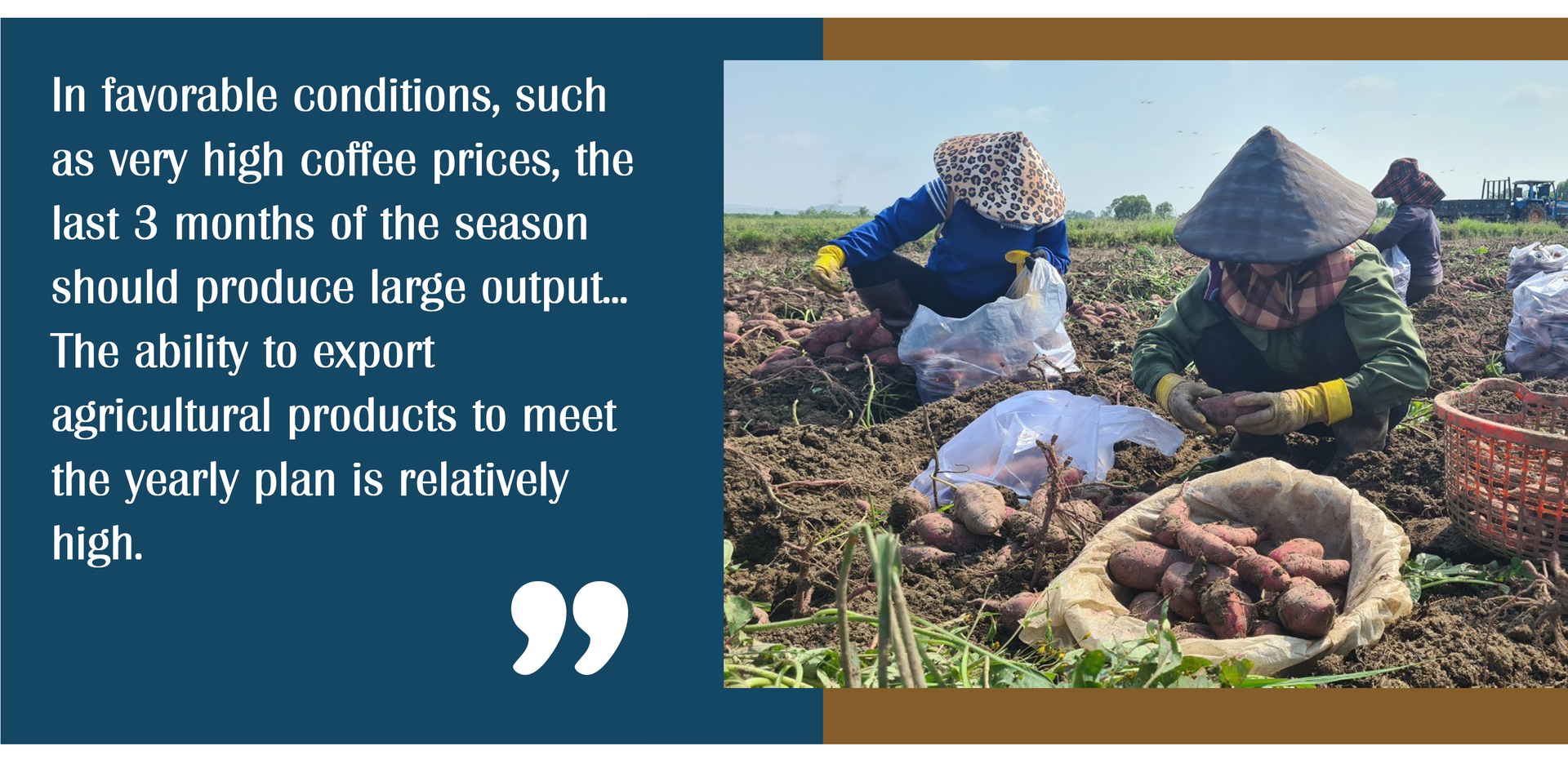
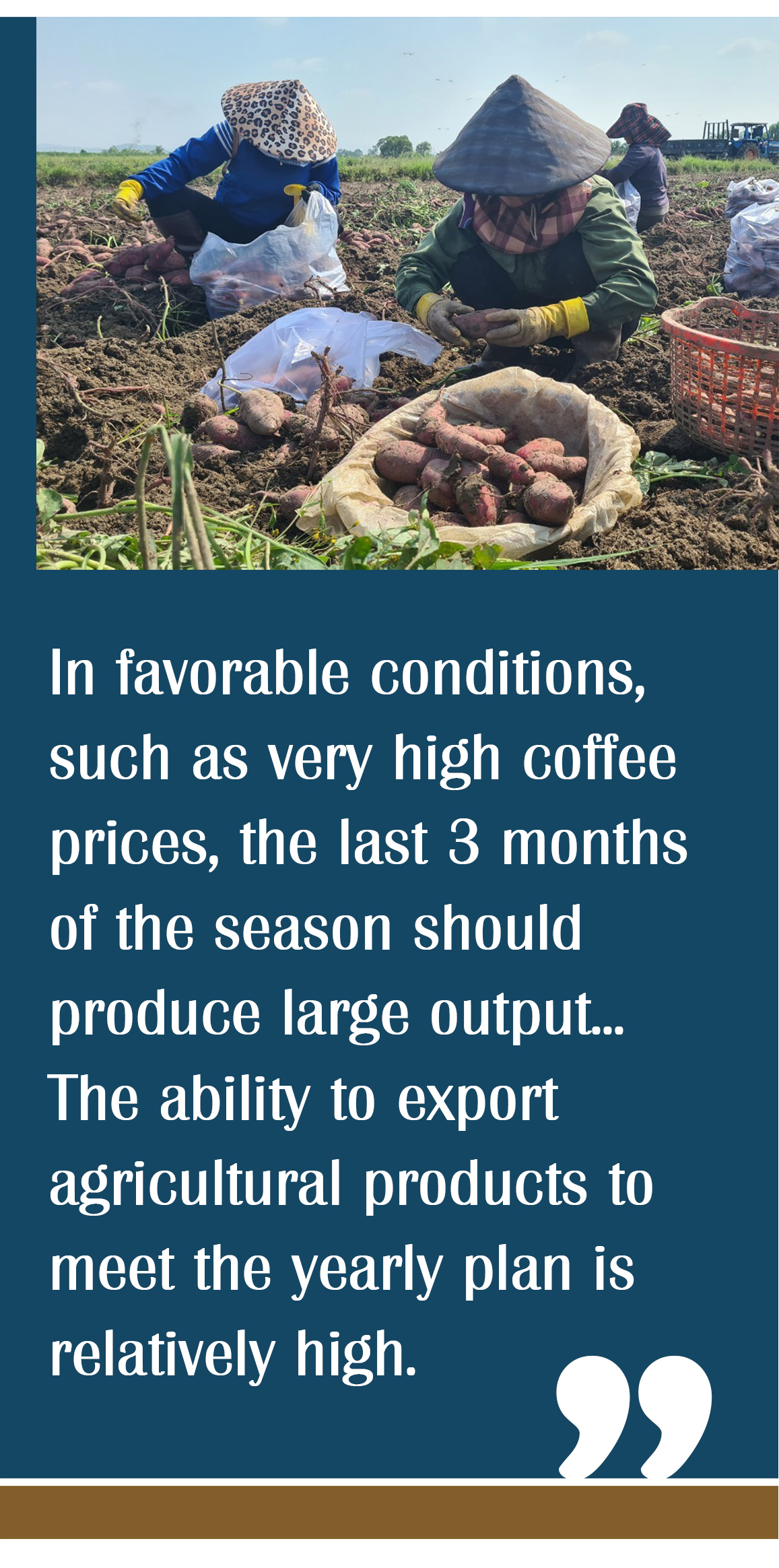
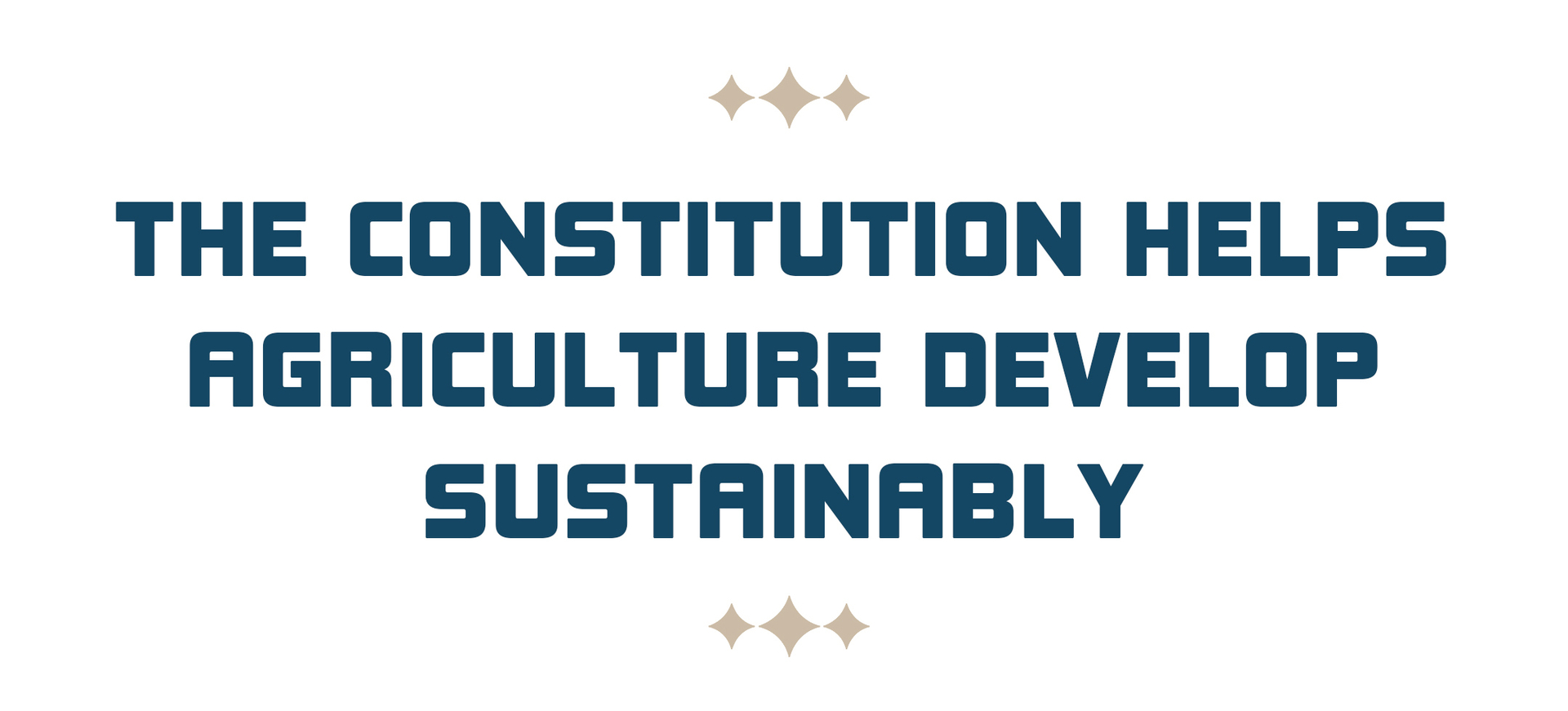
The connection between production, processing, and consumption of products is not sustainable.
By converting ineffective crop structures to fruit growing, Gia Lai province's agriculture has brought practical results, promoting effective and sustainable production development to adapt to climate change.
In general, the converted crop models and objects bring economic efficiency 2 - 5 times higher than before the conversion. This is the premise and basis for localities, businesses, and people in the province to invest in promoting the transformation of crop structure and organizing fruit production towards concentrated, large-scale commodity production, linking production with processing and consumption of products.
However, the production scale of Gia Lai province is small and widespread, and the application of science and technology is not much. On the other hand, the connection between production, processing, and consumption of products is not sustainable.
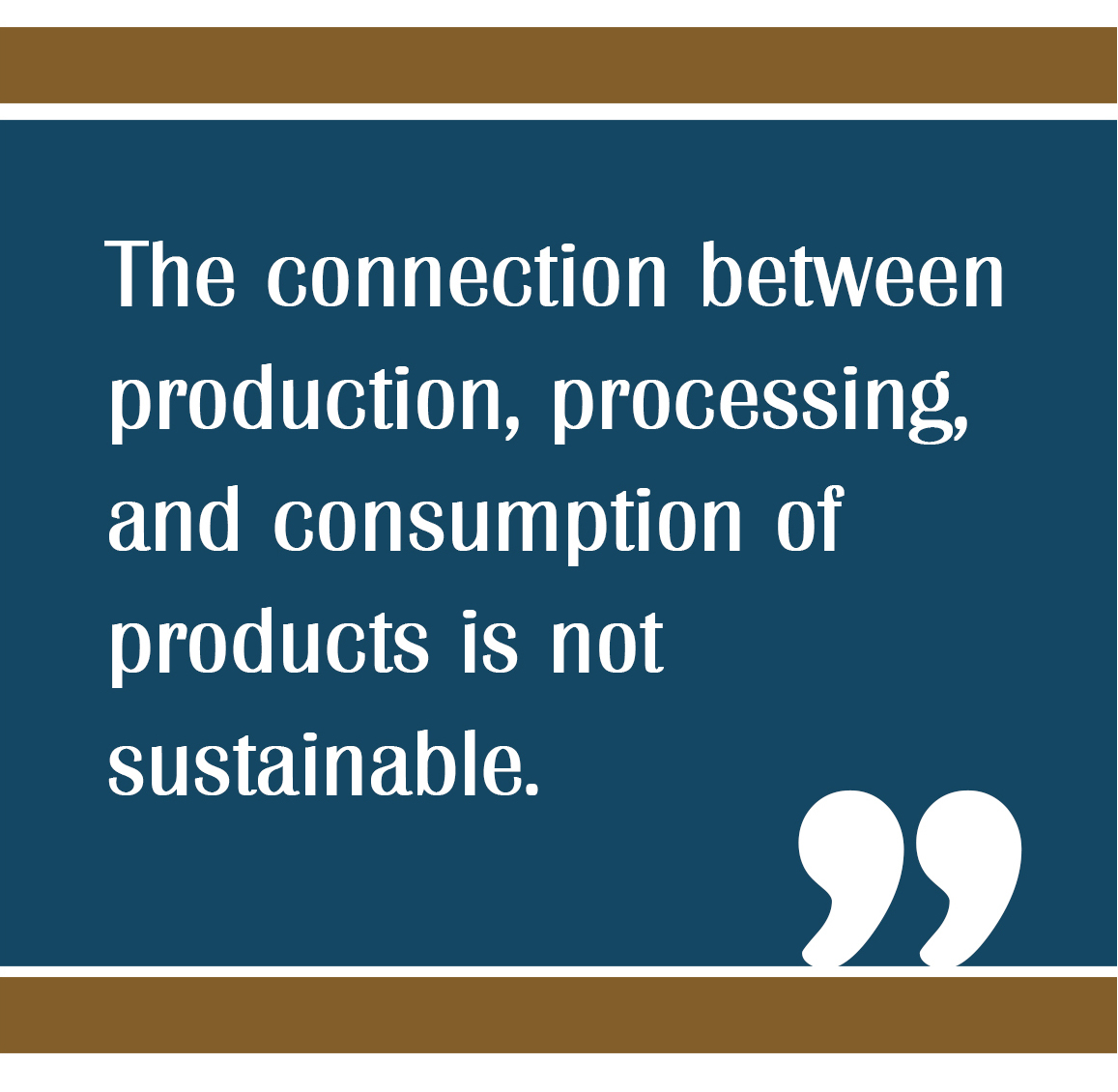
Enterprise participation and investment in guiding, transferring, and applying scientific and technical advances, high technology, and new technology to production (such as seed technology, pest control technology, irrigation, harvesting technology, fruit preservation...) and participating in investment in infrastructure development, investment in community welfare in the company's and factory's fruit raw material areas is still very limited.
In particular, the quality of seedlings, especially passion fruit seedlings, must continue to be improved. Currently, Gia Lai does not have a virus testing room to test and certify the quality of fruit tree varieties.
On the other hand, the link and cooperation in production between businesses and farmers, cooperatives, and cooperative groups is not sustainable, mainly still trading agreements.
Le Van Tuyen, General Director of Thong Do International Joint Stock Company, said that according to experience in fruit production over the past many years, to have a breakthrough, the most prerequisite factor is still product quality. Passion fruit has been stagnant recently because production produces many poor products, using pesticides and not taking care of them properly, leading to poor quality fruit. However, many households still harvest and sell to the market, leading to low prices. As for high-segment needs, customers still have demand, but there is not much product, and not many people can do it. If the above problems are resolved, quality products can access demanding markets in the future.
"In the immediate future, we have also established a department to direct people to produce passion fruit in a clear direction to purchase and export to the European market. At the same time, link with processing enterprises to find markets and guide people to produce according to the same standards," Tuyen shared.
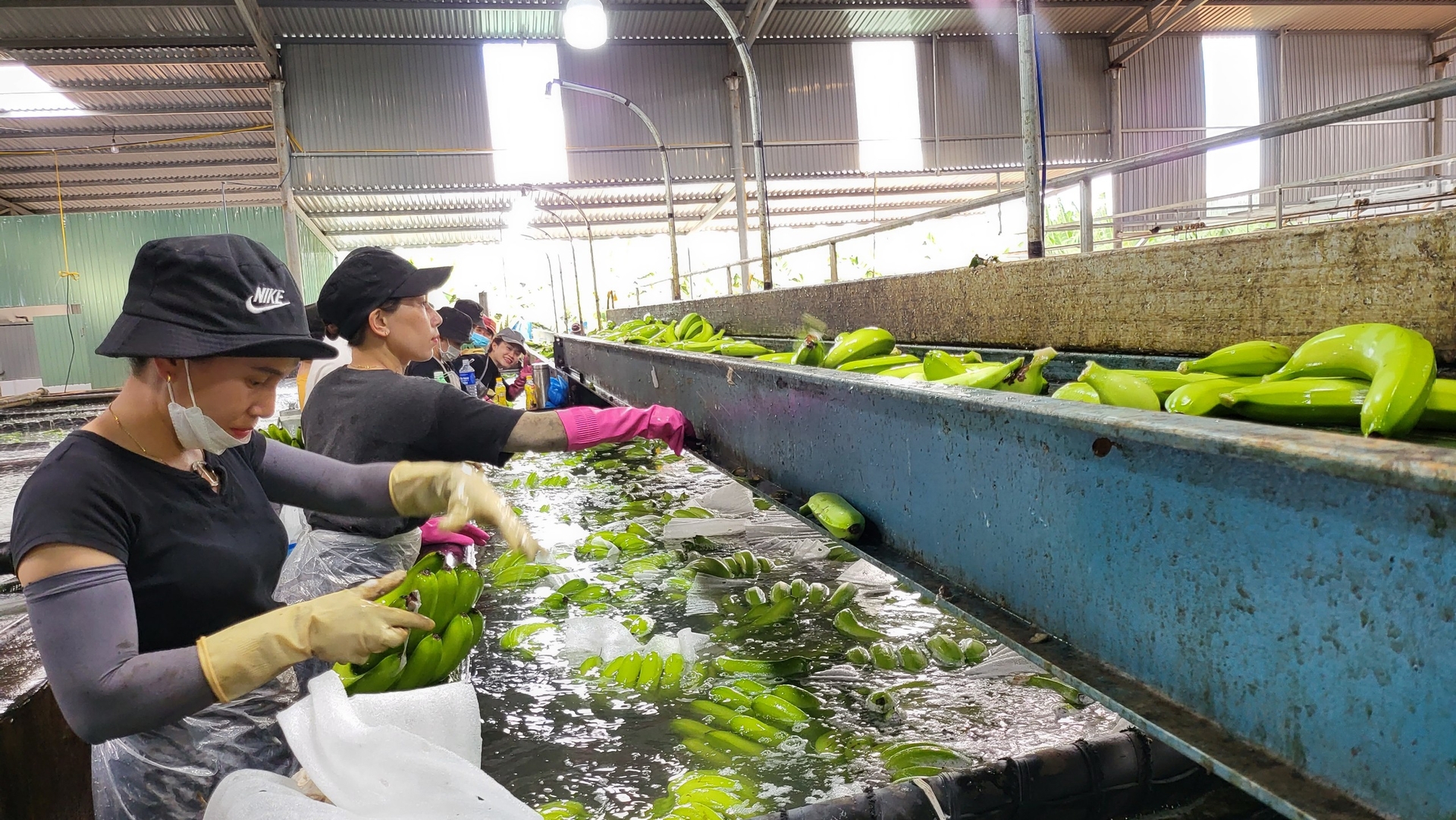
Le Van Thanh, Director of Ia Mo Nong Production - Trade - Service - Tourism - Agriculture Cooperative, said that for Gia Lai agricultural products to develop sustainably, there are two solutions. Specifically, households that have joined forces with passion fruit and durian production cooperatives will sit together to agree on a production plan according to a process. Accordingly, the cooperative will commit to purchasing output for products with businesses. Also, the business will develop a standard procedure for plants and provide technical support for garden care for each household.
Also, according to Thanh, more than 70% of durians are intercropped in coffee gardens in the province. However, durian trees' growth mechanism differs from coffee's. Currently, households produce according to each style, producing uncertain fruit quality. For example, the current market price of durian is VND 110,000/kg, but Gia Lai durian is only priced at VND 80,000/kg due to improper cultivation. Therefore, if people want to get two sources from: durian and coffee, they must feed the coffee trees with fertilizer along with the durian trees.
Currently, the cooperative is granted 3 durian growing area codes, expected to yield about 4,000 tons of fruit/year. Soon, households participating in the durian growing association will be instructed to cultivate according to a standard process, and the cooperative will commit to purchasing at high prices. Next season, the cooperative will review the total area and expected yield of how many tons to offer for sale to partners. Only then will the durian output market be sustainable.
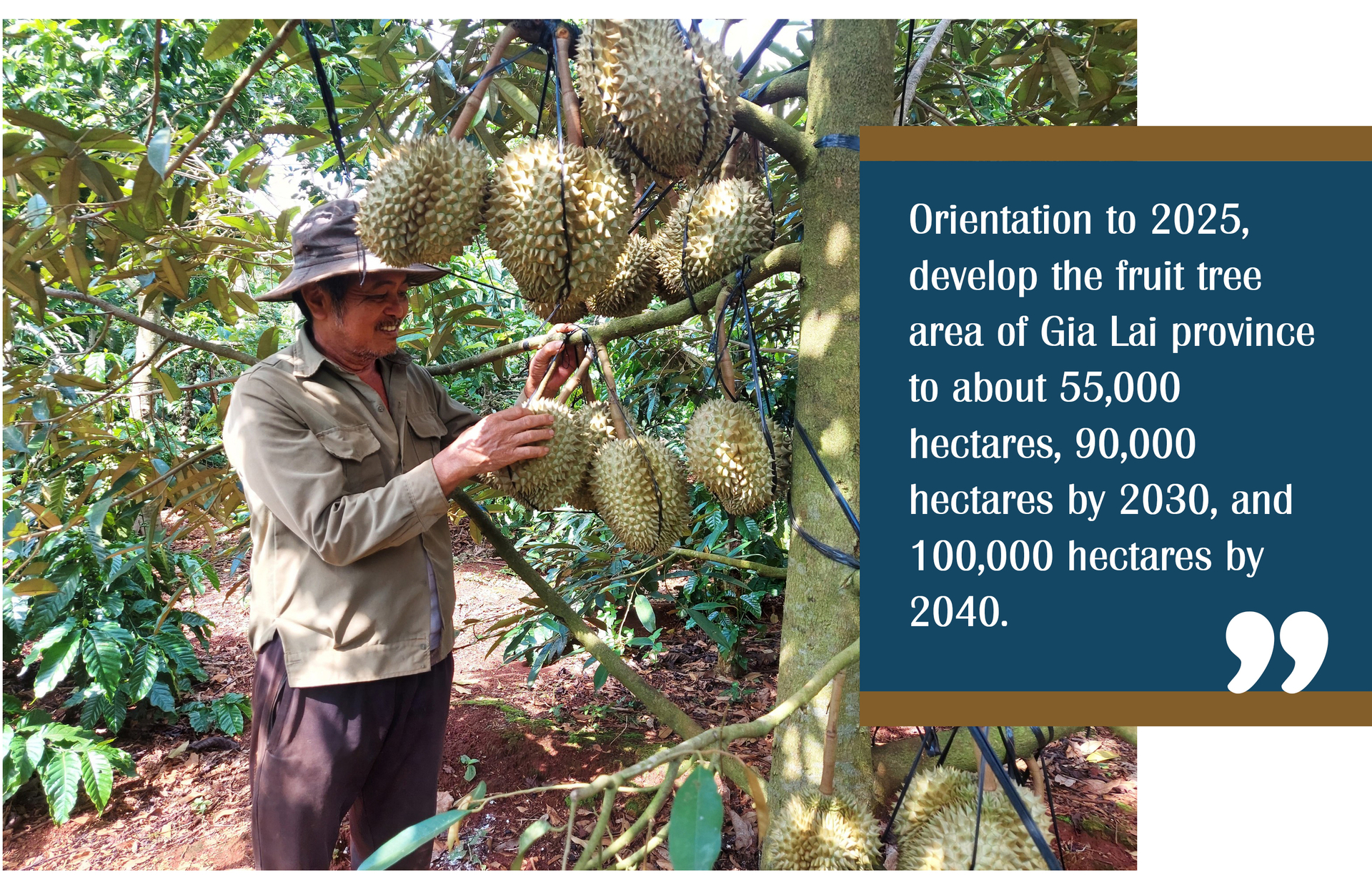
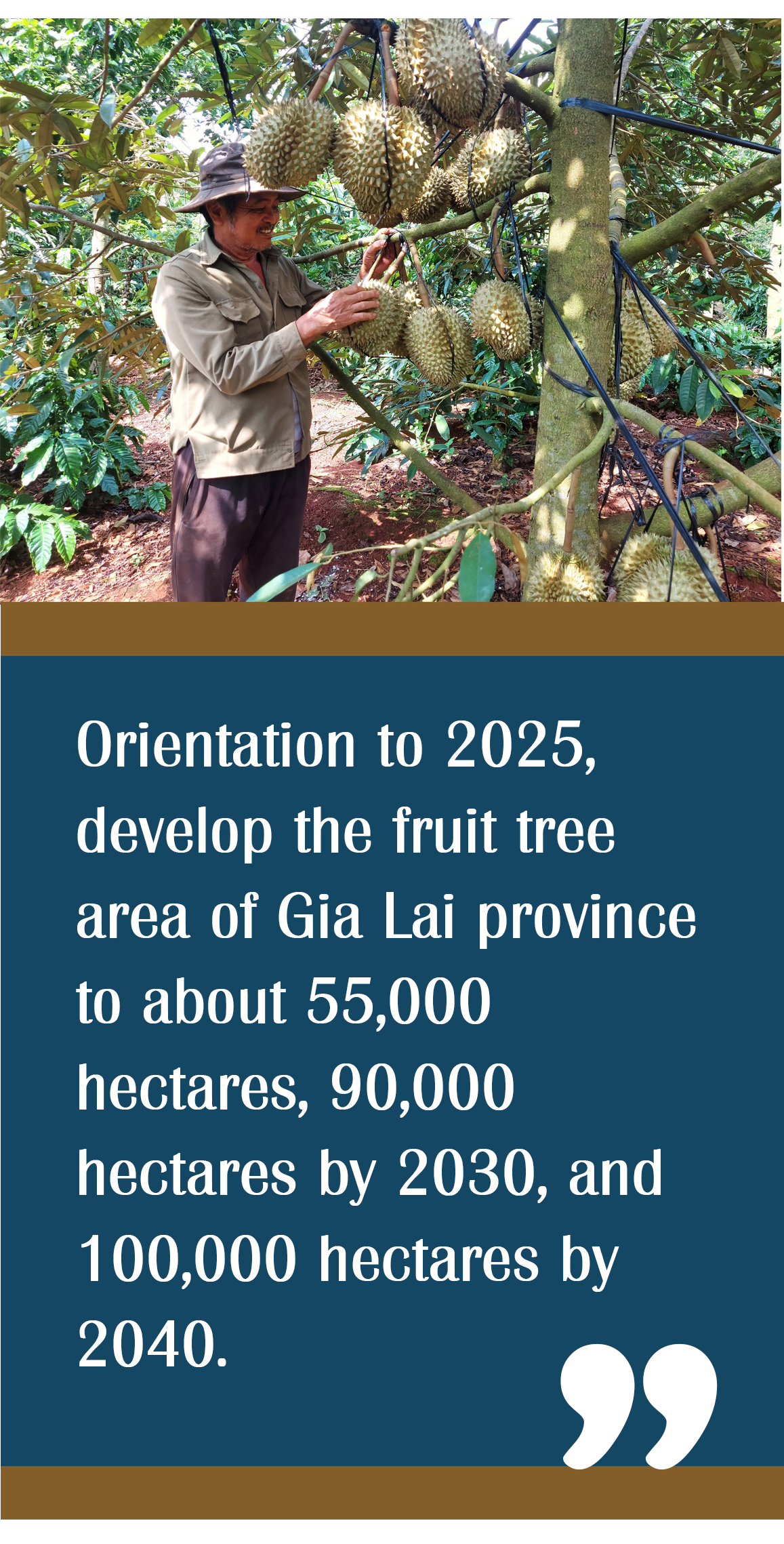
Doan Ngoc Co, Deputy Director of the Department of Agriculture and Rural Development of Gia Lai province, said that by 2025, the development of fruit tree area in Gia Lai province will be about 55,000 hectares, about 90,000 hectares by 2030, and 100,000 hectares by 2040.
To help Gia Lai's agricultural sector develop stable, sustainable, effective production and adapt to climate change, the Department of Crop Production, the National Agricultural Extension Center, the Vietnam Fruit and Vegetable Association, and businesses need to continue to support, introduce, connect partners, and invite businesses and investors to Gia Lai.
Firstly, invest in joint development and production of fruit trees with potential and advantages of Gia Lai, such as passion fruit, durian, banana, avocado, jackfruit, mango, pineapple, rambutan, and custard apple), grapefruit, longan,... associated with the processing and consumption industry in a modern, sustainable direction, producing large goods and forming fruit production chains from growing areas to processing and consuming products.
On the other hand, support Gia Lai province to build and form plant seed markets, centers for producing and trading productive fruit varieties, high quality, resistant to pests and diseases, and adaptable to climate change, building and transferring models and processes for breeding disease-free plants. Also, connect and support businesses and cooperatives in the province to participate in domestic and foreign trade promotion activities. Joint ventures and direct links with foreign partners in investing in developing raw material areas, applying high technology and advanced technology to production along the value chain, deep processing, creating commercial products with significant added value…
Orientation to 2025, develop the fruit tree area of Gia Lai province to about 55,000 hectares, 90,000 hectares by 2030, and 100,000 hectares by 2040.
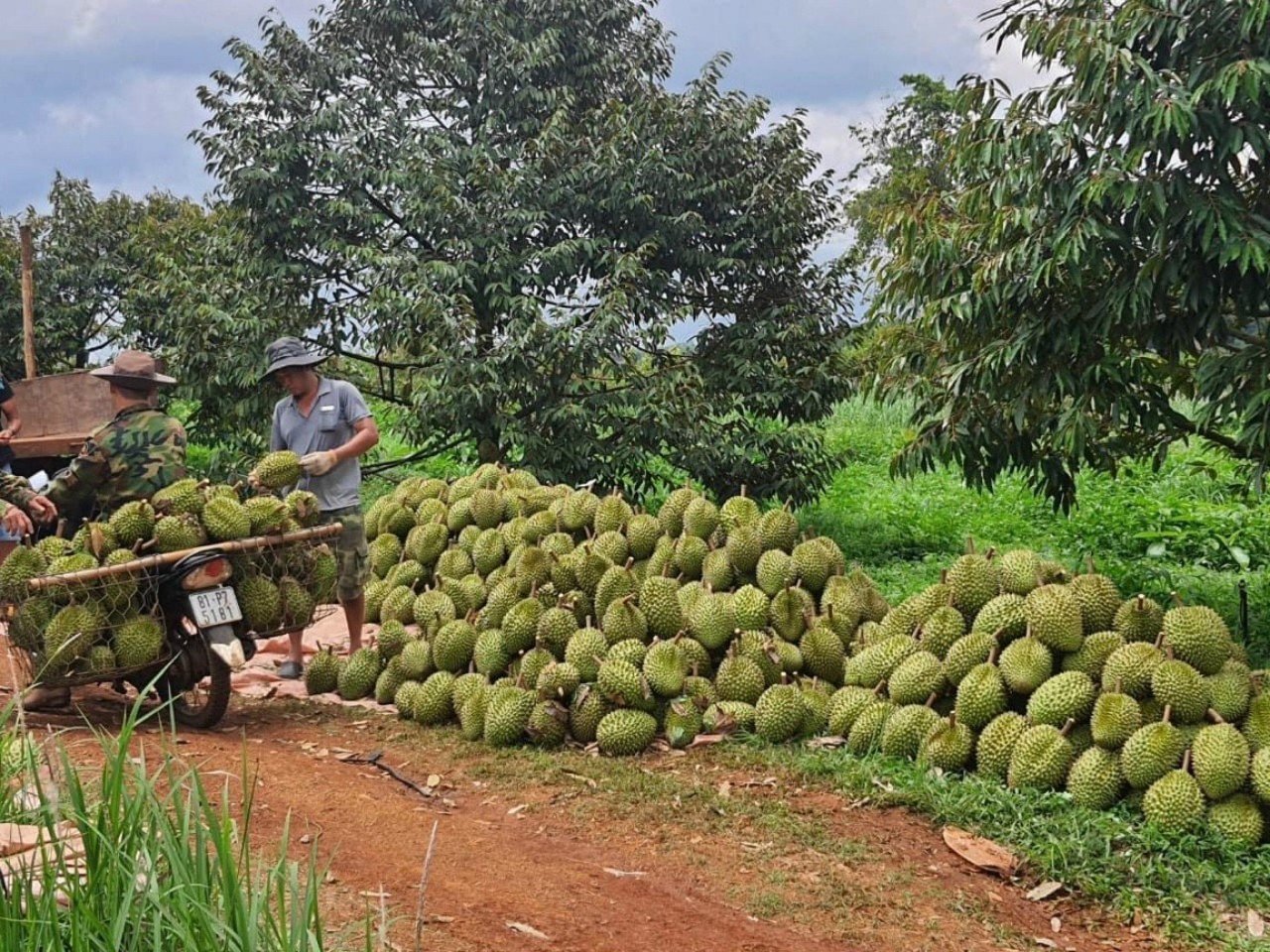
Content: Dag Lam - Tuan Anh
Photo: Tuan Anh
Translated by: Huong Giang
Design: VAN


